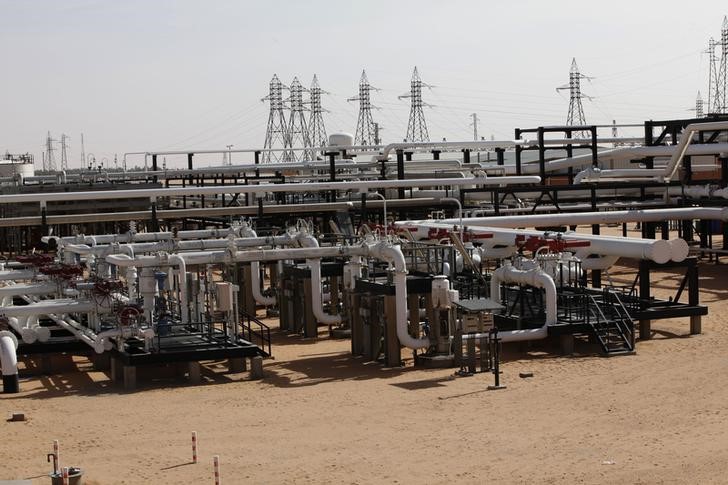By Alex Lawler
LONDON (Reuters) - OPEC's oil output is likely to set another record high in October, a Reuters survey found on Monday, as Nigerian and Libyan output partially recovered from disruptions and Iraq boosted exports.
The rise in output could add to scepticism about OPEC's ability to finalise a plan agreed in September to limit supplies. Oil (LCOc1), which rallied to a 2016 high near $54 a barrel following the decision, has since slipped towards $48.
Supply from the Organization of the Petroleum Exporting Countries has risen to 33.82 million barrels per day (bpd) in October from a revised 33.69 million bpd in September, according to the survey based on shipping data and information from industry sources.
That would be 820,000 bpd above the top end of a target output range OPEC agreed to adopt at a Sept. 28 meeting. According to analysts, production near 34 million bpd would prolong the supply surplus weighing on the market.
"With OPEC production creeping up towards 34 million barrels a day, a production freeze guarantees that the oil market will remain out of balance throughout 2017 and into 2018," said David Hufton of oil broker PVM.
Supply has risen since OPEC in 2014 dropped its historic role of fixing output to prop up prices as Saudi Arabia, Iraq and Iran pumped more. Production has also climbed due to the return of Indonesia in 2015 and Gabon in July as members.
October's supply from OPEC excluding Gabon and Indonesia, at 32.88 million bpd, is the highest in Reuters survey records starting in 1997.
In October, the increase was led by Nigeria, Libya and Iraq.
Supply in Nigeria, where output had fallen due to militant attacks on oil installations, rose as exports of Qua Iboe and Forcados crude resumed.
In Libya, production has been hit by port shutdowns, strikes and protests since the fall of Muammar Gaddafi in 2011. Output has increased in recent weeks since the reopening of some major terminals, but remains a fraction of the 2011 rate.
Iraq exported more crude from its northern and southern ports, lifting supply to 4.58 million bpd in October from a revised 4.52 million bpd in September, according to the survey. Iraq says its September production is higher.
Saudi Arabia has kept supply steady to lower, but still within sight of the record high reached in the summer, sources in the survey said. One source said there were signs of a bigger drop in output.
Fellow Gulf producers the United Arab Emirates and Kuwait both pumped slightly more. The two say their production is higher than estimated by both the Reuters survey and by the sources that OPEC uses to monitor its output.
Supply growth in Iran, OPEC's fastest source of production increases earlier this year after the lifting of Western sanctions, has slowed down as output nears the pre-sanctions rate. Iran is seeking investment to boost supply further.
Among countries with lower output, the biggest drop was in Angola because of planned maintenance on the Dalia crude stream which pushed exports to a 10-year low.
OPEC's smallest producer Gabon pumped less because of a workers' strike, which cut output for part of the month.

The Reuters survey is based on shipping data provided by external sources, Thomson Reuters flows data, and information provided by sources at oil companies, OPEC and consulting firms.